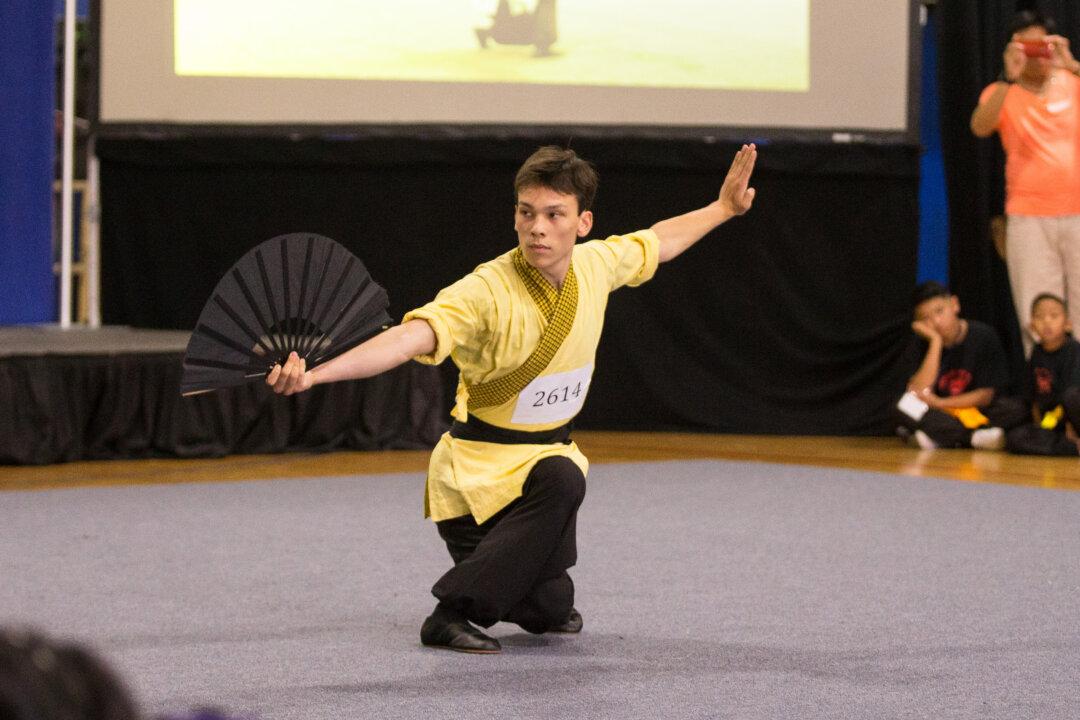Skimming through news articles in Chinese publications, it’s hard not to notice a trend emerging out of the average: the superb quality of China’s police force.
The purported exploits, from ordinary acts of kindness to detective triumphs of extraordinary merit, of these tireless “uncle policemen,” as they are known to Chinese, are recorded in bombastic diction and overwrought detail.

In this file photo paramilitary police march through Tiananmen Square in Beijing on Nov. 7, 2012. Mark Ralston/AFP/Getty Images





